Treble’s Best Albums of the 70s: Part One
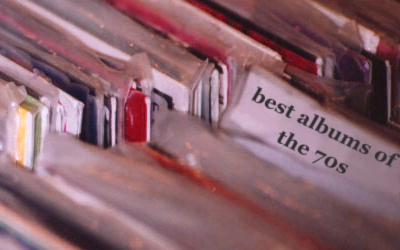
1972
 10. T. Rex — The Slider (EMI)
10. T. Rex — The Slider (EMI)
T. Rex was one of the most important bands of the `70s, essentially inventing the glam rock movement and influencing everything in its wake. The Slider is T. Rex at their peak, showcasing everything from hard rockers to softer ballads, booming yawps to orgasmic grunts. T. Rex leader Marc Bolan is, for lack of a better word, a weird guy and on The Slider, he allows you to enter his fantastical world of mystic ladies and metal gurus. Don’t you want to experience a little T. Rextasy of your own? – Molly B. Eichel
Read Review
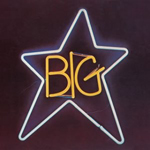 9. Big Star — #1 Record (Stax)
9. Big Star — #1 Record (Stax)
Big Star’s #1 Record was anything but. Catchy, beautiful and poorly marketed, it has since been secluded to “cult” status. Still, they played an integral part in influencing underground music. Artists ranging from Elliott Smith to the Replacements to The Posies count Big Star as a major jumping off point, and why shouldn’t they? With pop songs as perfect as “Thirteen,” “The Ballad of El Goodo” and “When My Baby’s Beside Me,” they left a tempting model to emulate. — Jeff Terich
Read Review
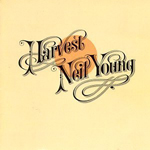 8. Neil Young — Harvest (Reprise)
8. Neil Young — Harvest (Reprise)
What was the best selling album of 1972 as well as that of Young’s career stood out to be one of the choicest cuts of his entire discography. Having recorded the album before and after back surgery, confined to a wheelchair in the studio while under heavy sedation, Young’s lyrics showed the world a piece of his soul. With a tender country-rock foundation Young addresses the issues of love, life, and the loss of Crazy Horse bandmate Danny Whitten to the perils of substance abuse. Although he was already a rock and roll visionary for the over half a decade prior to its release Harvest marked the beginning of Neil Young span as a legend whose music has and will continue to go forth into generations ahead of its time. — Chris Pacifico
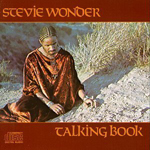 7. Stevie Wonder — Talking Book (Motown)
7. Stevie Wonder — Talking Book (Motown)
Having already twelve albums to his name, some of them under the modifier “Little” (meaning if it were released today he’d be Li’l), Stevie Wonder was only 22 years old when Talking Book was released. The funk and soul of “Superstition” made Wonder a superstar, “You are the Sunshine of My Life” was perfect for repeated radio play and “I Believe (When I Fall in Love It Will Be Forever)” was a gospel epic that blew people’s minds back then and even now as it plays over the closing credits of the film High Fidelity. — Terrance Terich
Read Review
 6. Roxy Music — Roxy Music (Reprise)
6. Roxy Music — Roxy Music (Reprise)
Roxy Music is a daring, challenging release thanks in large part to Brian Eno. It’s one of those albums that pushes the boundaries of the medium, mutating the flesh and bones of rock and roll. It is a mish-mash, an artsy hobo’s slumgullion, a wicked little animal made of familiar parts yet not wholly resembling anything its ancestry might suggest. It is the okapi of the great albums of the 1970s. — Hubert Vigilla
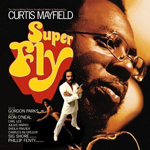 5. Curtis Mayfield — Superfly (Curtom)
5. Curtis Mayfield — Superfly (Curtom)
The first of many blaxploitation films to be known more for its soundtrack than its actual visual content, Superfly saw Curtis Mayfield making the album of his career. Creating a backdrop for the story of a pusher trying to get out of the game, Mayfield made a funk symphony, a gigantic soul record with grooves and hooks galore. And deep within the solid beats and basslines, there lies a hopeful, optimistic message. — Jeff Terich
 4. Rolling Stones — Exile on Main Street (Rolling Stones)
4. Rolling Stones — Exile on Main Street (Rolling Stones)
While not in Kid A territory as stylistic departures go, the very length and breadth of music on offer makes Exile on Main Street a less obviously marketable proposition than The Rolling Stones’ previous material. It shifts between straightforward rockers, acoustic country tinged blues and R&B torch songs. The opening “Rocks Off” is a hell of a tune, a fantastically ridiculous statement of intent exacerbated by its “sunshine bores the daylights out of me” line. It’s tempting to just listen to track one on repeat until you erase yourself a bit. Some of the tracks sound a little dated (“Sweet Black Angel” anyone?), but that’s part of the deal with the formative period of anything. — Thomas Lee
 3. David Bowie — The Rise and Fall of Ziggy Stardust and the Spiders from Mars (RCA)
3. David Bowie — The Rise and Fall of Ziggy Stardust and the Spiders from Mars (RCA)
Containing no fewer than three of our chosen “Best Songs Ever” of the ’70s, it was obvious from the get-go that Ziggy Stardust would make it to one of the more respectable positions on our Best Albums list. A concept album with a very loose concept, Ziggy made glam rock into a sprawling, epic work of art, all without pushing the 5 minute song length limit. Depending on which side of the Bowie canon you prefer, this may or may not be the best album he ever released. And if you were really paying attention, it may or may not be the best album anyone has released. — Jeff Terich
Read Review
 2. Lou Reed — Transformer (RCA)
2. Lou Reed — Transformer (RCA)
In 1972, when Transformer debuted, everyone who bought it heard an album that was uniform in its dirty, dark power. It must have been a welcome relief to those who had followed Reed’s career until then—his first solo work, 1971’s Lou Reed, proved somewhat flat, and left many thinking he might not recover from his fissure with the Velvets the year before. — Andrew Good
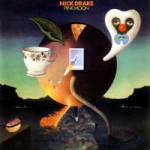 1. Nick Drake — Pink Moon (Island)
1. Nick Drake — Pink Moon (Island)
There’s always been a lot of hyperbole over Pink Moon often focusing on its bleakness. I suppose it’s inevitable given that this was the last non-posthumous Nick Drake album, with a more lo-fi nature than its older siblings and his continued relative obscurity. Pink Moon does feature the occasional sparse message, but the album offers so much more than that. — Thomas Lee
Personal Best
 Can — Ege Bamyasi (United Artists)
Can — Ege Bamyasi (United Artists)
Can reached their peak with their oddly named fourth album, Ege Bamyasi. The third album with singer Damo Suzuki, it represented a strangely accessible, yet oddly experimental side of the band. It was, at times, playful. At others, it was far more chaotic. But as a whole, it’s one of the most impressive and enjoyable albums of the progressive rock era. It even garnered them a hit with the motorik-grooved “Spoon,” whose title later lent itself to the band’s own record label. Ege Bamyasi is also one of Can’s funkiest albums, which gives further evidence that they were much more fun than many of their dragon-slaying British contemporaries. — Jeff Terich
 Black Sabbath — Vol. 4 (Warner Bros.)
Black Sabbath — Vol. 4 (Warner Bros.)
Long before Ozzy Osbourne was biting the heads off of animals and making a crappy reality TV show with his two drug-addict kids (the apple never falls far from the tree), he was pioneering the sound for heavy metal to come. On Vol. 4 we see the boys from Birmingham in the midst of their prime and with blizzard in their nasal cavities. This was riff rock at its best and was also the beginning of the end for Black Sabbath. — Chris Pacifico

